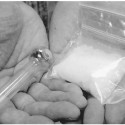What to Expect at Eating Disorder Treatment Centers
About Eating Disorders and Treatment
Most eating disorders, such as anorexia and bulimia revolve around a person’s distorted body image of their self. People who have eating disorders commonly feel as though they are not attractive or need to lose weight, even if they are extremely below weight. Eating disorders can cause numerous health complications in a person’s life. For example, with anorexia, a person may lose bone marrow and not receive the nutrients they need to keep their muscles and organs healthy. In addition, a person with bulimia may cause permanent damage to their esophagus due to their excessive need to regurgitate their food.
According to the National Eating Disorders Association, eating disorders can become chronic and life threatening conditions if treatment is not received in time. Eating disorders are extremely serious health conditions that can be both emotionally and physically destructive. People who have an eating disorder need to seek professional help because early diagnosis and intervention can strengthen recovery.

Treatment centers for eating disorders incorporate nutritional counseling to help people make healthier eating choices.
Eating disorder treatment centers can provide a comfortable environment for a person to visit or live in, while they are learning to overcome their disorder. There are various types of treatment centers available to help people with their eating disorders, and a person will need to take the time to find one that is right for them.
What a Person Can Expect from an Eating Disorder Treatment Center
According to the National Eating Disorders Organization, treatment for eating disorders can be delivered in residential treatment facilities, hospitals and private office settings. Levels of care include short term inpatient care, partial inpatient care, intensive outpatient care, and outpatient care. Hospitalization patient care is short term and is only provided when a patient is psychologically or medically unstable.
If a person decides to go to an inpatient treatment program they can expect to have a nutritionist work with them on the proper food to eat, and they will most likely have a daily schedule to follow while they are in the program. At an outpatient eating disorder treatment center a person will have certain days and times they go to treatment, but still live their daily life as they please. The main source of treatment for both inpatient and outpatient treatment centers is therapy, and they will both work with the individual at their pace to help them find a healthy balance in their life again, and to help them learn healthy eating habits. This can be a timely process, but it is important for an individual’s overall health and for their future.
